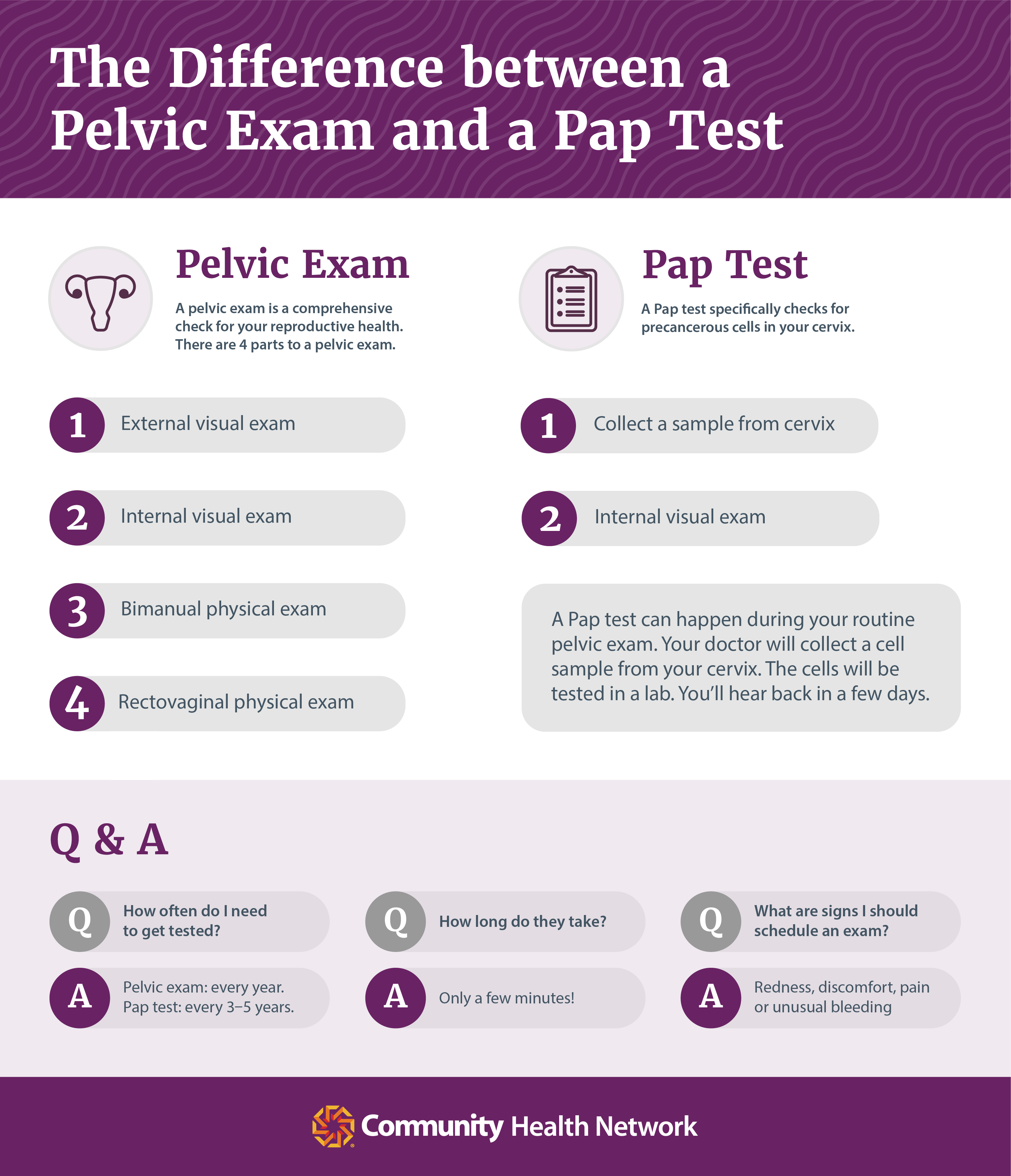Pelvic exams are a normal part of staying healthy as a woman. They’re how your doctor checks your internal and external pelvic health, and puts you on a treatment plan if they find anything out of the ordinary. Here’s what you need to know about pelvic exams, straight from Dr. Rachel Leland, an OBGYN at Community Hospital North.
What are signs I might need an exam?
You usually don’t need to make a specific appointment for a pelvic exam. Your doctor will give you one during your yearly women’s wellness visit. That being said, if you have any concerning symptoms in between annual visits, don’t hesitate to reach out to your doctor.
The first sign that you should schedule an appointment for a pelvic exam is if you feel any pain or discomfort below the waist. “Itching, burning, pain, abnormal discharge, bleeding between periods or bleeding after sex — these symptoms can all benefit from a pelvic exam,” says Dr. Leland. “Also be on the lookout for any physical changes like redness, irritation or bumps.”
Every woman over the age of 21 should adhere to regular pelvic exams. That being said, Dr. Leland urges that anyone under the age of 21 should consult with a gynecologist if there are concerns related to that area of the body.
What can the exam detect?
Pelvic exams get a comprehensive look into your pelvic health. They can catch signs of infections, cancers and other health issues and put you on a path to treatment. Exams are usually split into four parts:
- An external visual exam — Your doctor will look for any bumps, irritation or other changes to your vulva. This can catch cysts and signs of STIs.
- An internal visual exam — Your doctor will look inside your vagina for abnormal discharge or signs of any STIs.
- A bimanual physical exam — Your doctor will use her fingers to check the inside of your vagina. They’ll feel around for abnormalities in your ovaries or fallopian tubes.
- A rectovaginal physical exam — Your doctor will use her fingers to check the inside of your rectum. This lets her do a more thorough inspection for cysts or tumors behind your uterus.
Every 3-5 years, your pelvic exam will also include a pap test. Your doctor will collect a sample of cells from your cervix and send them off to a lab for testing. Pap tests reveal any pre-cancerous cells in your cervix, and they’re your best defense against cervical cancer.

Should I be nervous about the exam?
For women who are hesitant about scheduling their exam, Dr. Leland has some sound advice. “Unfortunately, the root of a lot of women’s hesitation is a painful experience in the past. I hope that patients can take comfort in knowing that our job is to make the examination as comfortable as possible for you.”
One way to shake off the nerves is to schedule a meet-and-greet with your doctor before you schedule your exam. “Establish a relationship with your provider and build that trust, and I think the exam will come a lot more naturally,” Dr. Leland assures.
It’s completely understandable to be worried about your doctor finding anything during the exam. What’s important to remember is that early detection is so critical to better outcomes. If your doctor finds anything abnormal, they’ll act quickly to put you on a treatment plan.
Take a simple step for your health. Schedule your women’s wellness visit with a caregiver at Community.

